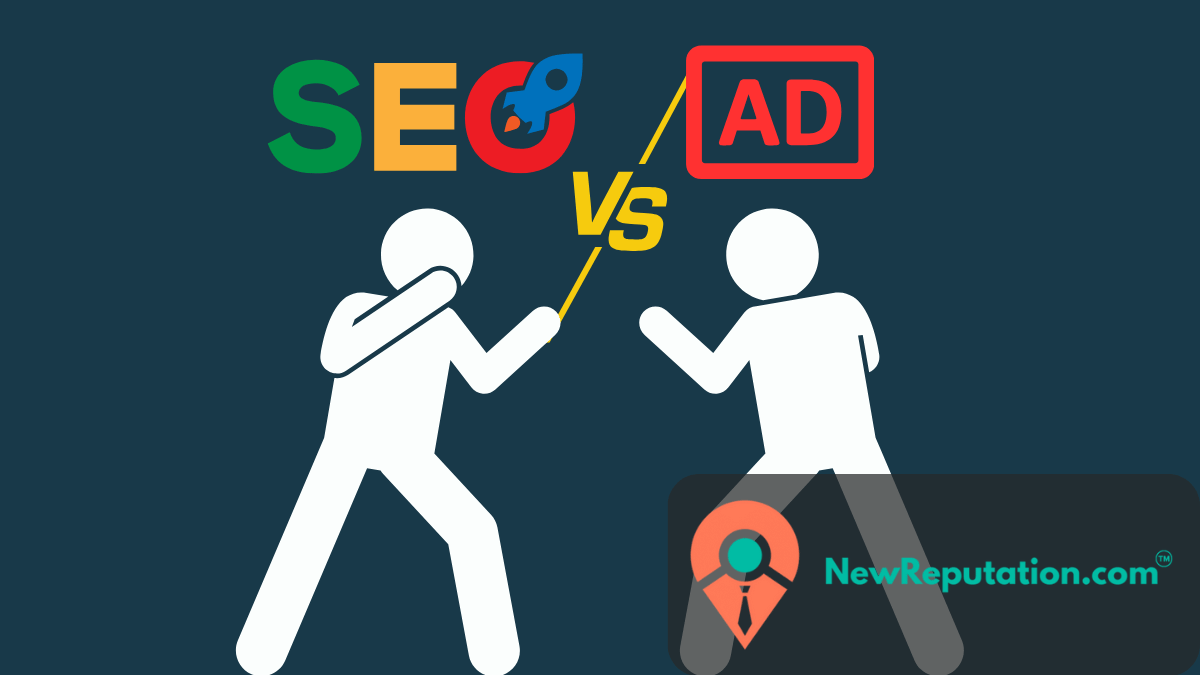It is a definite fact that the amount of traffic an online business generates for its page determines how successful it will be.
About 86% of consumers use the internet to find local services and businesses; hence, the more visible your site is to these searchers, the better.

.png)
While the above is obvious, digital marketers often ask, which is better to use between SEO and PPC?
However, the answer to this question is only sometimes applicable as it depends on specific factors particular to each marketer.
Definitively Search Engine Optimization, SEO, refers to the practice of including content on your web pages that have the potential to help you rank on search engines and improve your visibility to users.
It involves figuring out what the search engines consider relevant and optimizing your site accordingly.
While Pay-Per-Click, PPC involves advertising on search engine result pages.
With this method, you have to bid to have your ads appear in the sponsored results for search queries that include your keywords.
.png)
The two main differences between these two methods are that: traffic from PPC has a cost for each click (just as the name pay-per-click suggests), while organic traffic from SEO is free, and secondly, organic listings influenced by SEO appear below the paid ads which are displayed at the top of the page.
Note that SEO and PPC are two effective methods of generating traffic for a website. Still, the effectiveness of each depends on certain circumstances.
Marketers need to know the strength and limitations of each method to understand how to apply them correctly under optimal conditions.
SEO: Strengths
- SEO provides long-term results
- It is cheaper in the long-term
SEO: Limitations
- It requires unique and authoritative content
- It takes time to rank
PPC: Strengths
- PPC is fast
- It allows for quick experimentation
- It allows for granular targeting
PPC: Limitations
- You’ll need money even to start
- It can get expensive
- It will lose effectiveness when your campaign ends
SEO or PPC: Which will work best for you?
While SEO and PPC are legitimate traffic sources, here are considerations that will help you decide which option is best for you.
Do You Have An Innovative Product?
Organic traffics only comes from targeting keywords that people are already searching for. If you have an innovative product, you may need help finding it. And so, you have to put it out there for them to see via PPC.
Do You Want To Promote A One-Time Event Or Offer?
SEO is not the proper method for you if you want to promote a one-time offer or event.
This is because it takes time for results to start showing. When your content starts ranking, the offer or event may have long ended. Because PPC is fast, it is a better alternative.
Do You Want Consistent Results?
SEO is your best shot at creating a consistent result. Even though it takes time to rank on the first page of Google, once your website is there through SEO, you will reap sustainable traffic.
You can also stay at the top for a long time and enjoy long-term benefits if you continue your SEO campaign, maintaining and improving results.
Do You Want To Build An Authority Website?
If you want to establish a resource center for a particular niche that people can visit when they need certain information, you should use SEO.
Establishing an authoritative website is best to sustainably drive traffic to your website using SEO and gradually build up a reputation that can dominate its market.
Once an authority website gets going, it can drive traffic based on only URL recall.
Do You Want To Increase Your Website Value?
If your goal is to increase the value of your website, which is, in fact, your virtual real estate, to sell for a premium price, you should use SEO.
This is because the factors that will help increase its value in search engine ranking over time, amount and consistency of traffic generated, page rank, link popularity, and others, all fall under SEO.
Conclusion
The strategy to promote your website depends greatly on what you want to achieve.
Short-term = PPC
Long Term = SEO
We have discussed the pros and cons of each method, as well as circumstances that may require particular strategies. Employ them as they apply to your goal.
PPC Vs. SEO is a battle that your overall goals will only determine.
Frequently Asked Questions
What is SEO?
SEO stands for search engine optimization. It is the process of improving the ranking of a website in search engine results pages (SERPs). SEO can be done through various methods, such as optimizing the website’s content, structure, and code.
What is PPC?
PPC stands for pay-per-click. It is a form of online advertising where advertisers pay a fee each time someone clicks on their ad. PPC ads are typically displayed at the top or bottom of the SERPs.
What are the benefits of SEO?
There are many benefits to SEO, including the following:
- It is a long-term strategy that can help you build a sustainable online presence.
- It can help you attract more organic traffic to your website.
- It can help you improve your website’s ranking in SERPs.
- It can help you build brand awareness.
- It can help you increase sales and leads.
What are the benefits of PPC?
There are also many benefits to PPC, including:
- It can help you reach your target audience quickly.
- It can help you track your results and see your ads’ performance.
- It can help you reach potential customers searching for your products or services.
- It can help you generate leads and sales.
Which is better, SEO or PPC?
The best way to answer this question is to consider your specific goals and objectives. SEO is the way to go if you are looking for a long-term strategy to help you build a sustainable online presence. If you are looking for a way to reach your target audience quickly and generate leads and sales, then PPC is a good option.
Can I use SEO and PPC together?
Yes, you can use SEO and PPC together. Many businesses use a combination of both strategies to achieve their marketing goals. When you use SEO and PPC together, you can reach a wider audience and get more traffic to your website. You can also track your results more effectively and see how each strategy performs.




